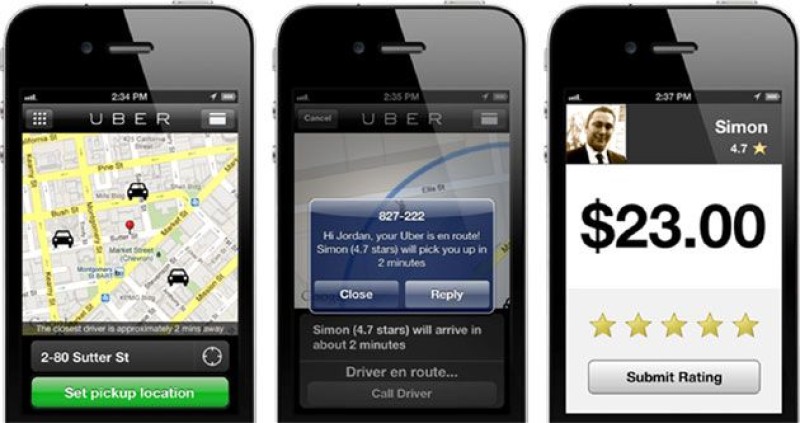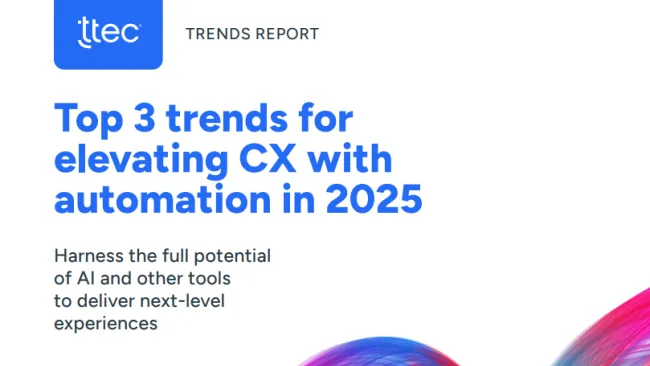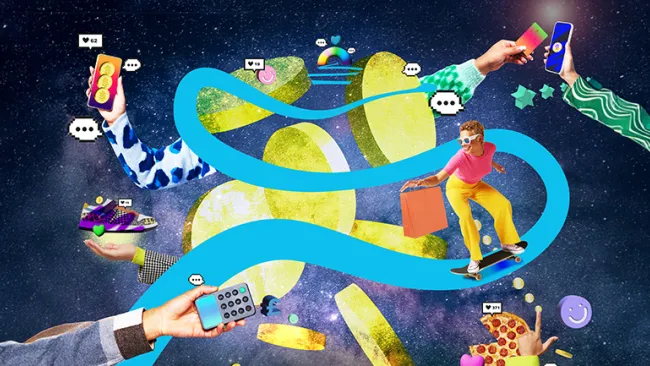Most customer interactions today are painful. Whether it's a sales or service experience, the burden is on the customer to make it positive. "Do you have your account number?" "What was the date of purchase?" "Which salesperson are you working with?" "Do you have a receipt?" "Have you set up a payment option?" The answers to these questions are the difference between success and horror. And in general, the scales tip toward the latter.
We customers put up with it, because we always have. I'm sure each one of you reading this can recall a poor experience with a company you have done business with. The symptoms are nearly always the same: The company didn't recognize you. It didn't really listen to your issue. It treated the transaction without regard for you as a person. It was more focused on ending the interaction than solving your problem. And it was up to you as a customer to prove your case.
It shouldn't have to be this way. And for some progressive companies, it's not.
Some companies have discovered that true customer engagement comes from eliminating friction in the customer experience. Respect customers' time, and you will gain their affection (and share of wallet). Reinvent processes, implement new technologies, and empower employees to create a slipstream type of customer experience. In order to deliver a pain-free, frictionless experience, brands must become more psychic.
Psychic brands sense all of the physical and digital signals customers are sending out. They watch, listen, and learn from everything their customers are telling them, both obvious and not-so-obvious. Then they respond with relevant interactions that anticipate customer needs in the channels and messaging customers prefer. They stay a step ahead of customers as an advisor to help them navigate through life, not as a vendor looking to make or save a quick buck.
Think about the implications. Have you ever had one of those experiences where you feel as though someone is reading your mind? They know what you are thinking, before you say it. At first it can be a little unsettling, but if done properly, the experience can create a powerful and lasting connection in an instant. What company wouldn't want this level of customer intimacy and loyalty?
Now think about how you feel when you are having a conversation with someone who knows nothing about you and doesn't make any effort to get to know you. They ask you questions but they don't really listen to the answers. They just keep talking at you about things that are of interest to them. This isn't an optimal way to communicate in the personal or business world, but sadly, it's a far too common way of interacting.
The power to become psychic
Psychic brands take the concept of customer centricity to the next level. Just thinking about the customer point of view isn't enough. It's not about providing friendly customer service, targeting marketing messages, or installing CRM systems. Instead, it's positioning your entire enterprise to be proactive, predictive, and advisory in all current and future customer experiences. It's setting up infrastructure, processes, and culture nimble enough to adapt to changing customer realities in real time, in customer-facing departments and the back office.
Many companies talk about being proactive or predictive, but have never operationalized it. A common excuse is that there are limitations in the tools, technologies, and resources to put the idea into practice. That excuse simply doesn't fly anymore. With the right strategy, technology, execution, and management, any brand serving any market has the potential to be psychic.
It starts with leadership support. The CEO and entire senior management team must be on board to make sure the internal pieces are put into place. Without that, it's impossible to become a psychic brand.
New technologies and advanced data analytics are also enabling smart brands with the capabilities they need to read their customers' minds. Product, customer, and transaction data, data mining tools, social media analysis, voice of the customer programs, and cloud computing bring together myriad sources to generate a clear customer picture. Meanwhile, customers are willing to share personal information about themselves if they feel it will be used to provide value. They use mobile technology to provide and receive information in real time. They want to control the interaction, and expect your company to know them.
As of today, very few brands have brought the psychic concept to fruition. The standout brands that come to mind are Amazon and Zappos. Each of their business models is explicitly designed to take friction out of the customer experience. They took traditional, boring products— books and shoes—and reinvented how customers experience them, then expanded. Amazon in particular is excellent at anticipating customer needs before they have them, and has built user experiences that foresee and resolve potential issues before they happen.
Even a mundane task like calling a taxi has the potential to be psychic. Uber is an on-demand car service app that eliminates friction for both drivers and riders. It connects your real-time location via GPS to a bevy of idle taxis or car services in major cities around the globe. For a slightly premium price, you can immediately connect with a driver who is free and willing to take you where you need to go. Payments are made with smartphone-enabled credit card readers or via online accounts, and users rate each driver on a scale of 1 to 5. Drivers don't need to wander aimlessly around cities, and riders get a car exactly when and where they need one.
The company is thinking ahead to anticipate customer needs. To do this, it employs local community managers for each city it serves to develop relationships with drivers and riders, and learn from them as the business evolves. For example, it recently expanded into the ride-sharing market, where groups of people connect in real time on a fare. Uber is scaring traditional taxi drivers, who fear that the model will take business away from their in-control "we'll get to you when we get to you" business. As a consumer, which would you prefer?
And Russian makeup retailer Ulybka Radugi is taking the psychic concept one step further, experimenting with cameras that use facial recognition software in its 280 stores to sense a customer's mood. According to a recent article in Time, the tool correlates perceived moods to purchase and loyalty program data, and can create tailored, real-time product promotions and discounts for customers who aren't smiling at checkout. It's being used to create a unique in-store customer interaction that online competitors can't match.
If these companies can be more proactive and predictive with their customers, why can't your company do something similar? It just takes a willingness to try. Here are a few scenarios in which a frictionless experience is welcome, easy, and builds loyalty and brand affinity:
- Hospitality: You are on your way to the airport and your flight is canceled. The airline proactively sends you a text. You've been booked on the next available flight and your car and hotel reservations have been updated.
- Entertainment: You are out of town and have to take a client to dinner. You use an app on your phone and immediately get restaurant recommendations ranked by your social media network, as well as directions from your current location, hours and a link to make online reservations.
- Automotive: Your odometer reads 15,000 and the telematics in your car accesses your Outlook calendar to schedule your appointment with the local service center. You also get a reminder text the day before with details about your car rental for the day.
These sorts of interactions are happening today. Carmakers Hyundai and BMW, for example, are rolling out comprehensive telematics programs that include automated monthly vehicle health reports that get emailed to customers and direct dialog with dealers that customers can access from the driver's seat.
But it's not easy. To survive, companies must untangle the maze of channels, broken processes, and legacy infrastructure to tap into the flow of customer insight that's out there in every tap, click, tweet, email, SMS, and conversation a customer has with a brand. It's also imperative to take a strategic approach to privacy and trust concerns of customers, to be sure what you think is psychic isn't in fact considered creepy by customers.
You don't need to be psychic to read the writing on the wall. Companies that are taking an integrated, enterprisewide approach to customer experience are winning. The companies that aren't are falling way behind. Which side of history will your company be on?

















